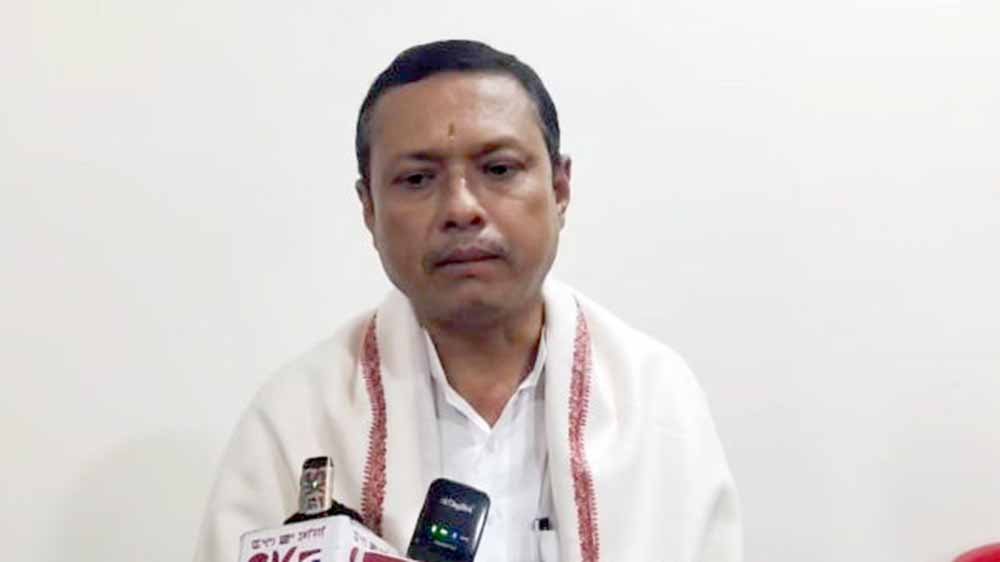BJP Rajya Sabha MP and titular king of Manipur Sanajaoba Leishemba joined the chorus and lambasted the recently released Independent People’s Tribunal report on the ongoing ethnic conflict in Manipur.
The lone MP from Manipur called it “one-sided, biased and ungrounded” while talking to the reporters on the sidelines of a function in Imphal on Sunday.
The 694-page report, authored under the chairmanship of former Supreme Court judge Justice Kurian Joseph and released by the People’s Union for Civil Liberties (PUCL), concluded that the violence which erupted on May 3, 2023, was “not spontaneous but planned, ethnically targeted, and facilitated by state failures”.
It also recommended that “hate propaganda and inflammatory speeches” which led to the escalation of violence should be prosecuted, and action should be taken against authorities who “failed to exercise their powers to prevent it”.
According to PUCL, the report was prepared after a team of jurors and experts visited conflict-affected districts including Bishnupur, Churachandpur, Imphal East, Imphal West, Kakching, Kangpokpi and Senapati, followed by sittings in Delhi to record testimonies and submissions from survivors and stakeholders.
Leishemba had earlier reacted to the report posted on his official X handle saying the reports were totally “wrong, biased, one-sided, baseless, ungrounded & added fuel to the peace process.”
He demanded a strong probe against the PUCL.
He told reporters that the PUCL report could mislead the Meitei community and insisted on a legal probe.
“All civil society organizations, the legal fraternity and the people need to demand a legal investigation. I will consult legal experts regarding the biased report of PUCL,” he said.
On the tribunal’s reference to Arambai Tenggol and Meitei Leepun as militant groups, the MP countered that both are “socio-cultural organizations” which took up arms only for self-defence during the initial stages of the violence.
“They are not anti-national but were compelled to pick up arms for self-defence,” he said.
“The violence could have been prevented if security forces had acted in time. Due to untimely action by the security forces, many innocents on both sides have taken up arms.
Nobody wanted to pick up weapons, but village volunteers of both the Meitei and Kuki communities were compelled to do so. Picking up arms for self-defence is also legally acceptable,” the titular king said. Senior advocate and former acting chairman of Manipur Human Rights Commission Khaidem Mani also described the recently released report as “biased and lacking transparency.”
Addressing the media at his residence in Imphal, Mani stated that the report appeared to have been prepared with a predetermined mindset instead of reflecting an impartial and balanced assessment of the situation.
He cautioned that such selective presentation undermines the credibility of the tribunal’s findings.
Referring to the prolonged unrest that has gripped the state for the past two years and four months, the former MHRC acting chairman questioned why the report overlooked crucial incidents. He highlighted, among others, the killing of six civilians, including women and children, in Jiribam; the public statement of MLA Paolienlal Haokip regarding cross-border involvement; repeated violations of the Suspension of Operations (SoO) agreement; and the killing of minors and youth.
He said, “These omissions raise serious doubts about the intent behind the report.”
He maintained that a genuine tribunal must provide a comprehensive account of all aspects of the crisis rather than presenting a one-sided narrative.
By ignoring major incidents and perspectives, the Independent People’s Tribunal had failed in its responsibility, he asserted.
He further remarked that the accountability for such shortcomings lies with the People’s Union for Civil Liberties (PUCL), the organisation that constituted the tribunal, adding that any future effort to address the conflict must uphold transparency, fairness, and inclusiveness.
Manipur RS MP lambasts PUCL report on Manipur ethnic conflict
CorrespondentIMPHAL, Aug 24

